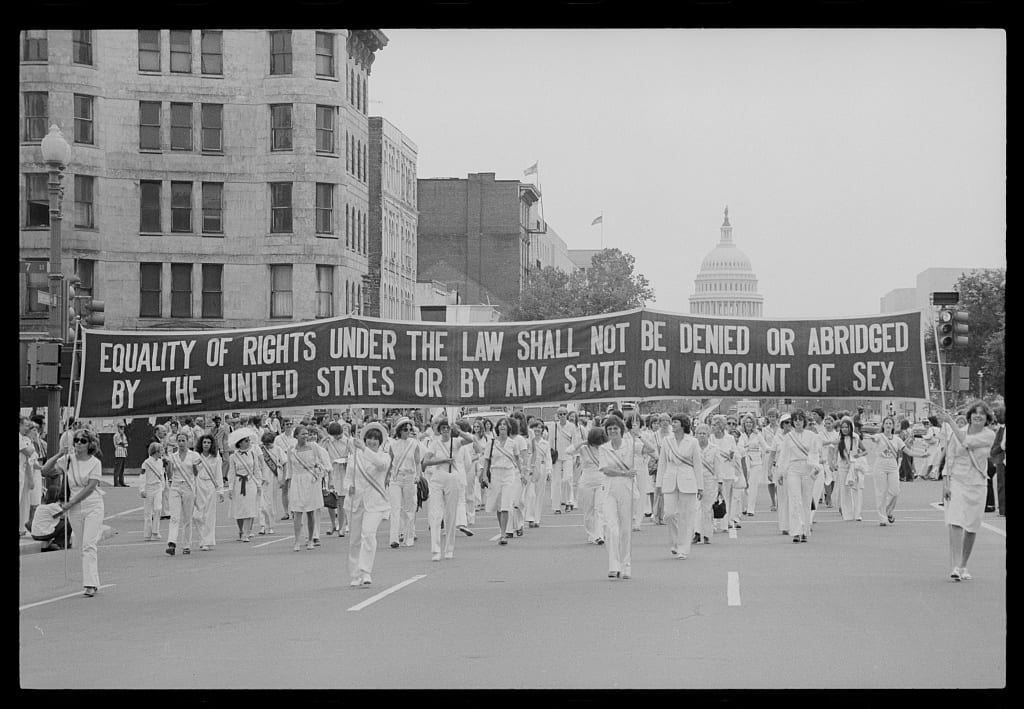Photo courtesy of the Library of Congress
Why is women’s history month important? Because historically women have been written out of history. Men, and the performance of masculinities within the realm of militarism, violence, conflict, wars, and diplomacy have been the priority of most historians. We have heard a lot less about women’s roles in war, as strategists, spies, combatants, soldiers, nurses, cooks, and domestic workers, amongst others. Similarly, we do not know much about the many women who have brokered deals with local rebel groups facilitating the release of hostages, or who have played crucial roles in countering violent extremism, the women who have worked across political and religious divides to mobilize support for peace, and the women who have led processes to reintegrate former combatants into society as part of post-conflict reconciliation.
Women have been challenging this erasure of our multifarious roles in society for centuries, at least since the 15th century when Christine de Pizan wrote The Book of the City of Ladies and then later in the 18th century with Mary Wollstonecraft’s famous book, Vindication of the Rights of Women. Knowledge is power. As women were given access to education literacy rates improved and women began to write about their experiences, often anonymously to have their work accepted for publication.
Today, these views have changed but they have not been completely erased. Take the recent takeover of Afghanistan by the Taliban and how their first actions were to remove girls from school and ban women from accessing employment outside the home. This is a key tactic of extremist groups, they espouse misogynistic ideologies to deprive women of their economic, physical, and intellectual liberty. Demeaning any group creates stereotypes and the denial of that groups accomplishments and social value leads to discriminatory cultures and laws. Over time, this discrimination becomes institutionalized through the education and socialization of children. Any erasure of women from society violates our most basic human rights as set out in the UN Declaration of human rights (1948).
In fact it was women who insisted that the term ‘everyone’ rather than the personal pronoun ‘his’ was (mostly) used in the Universal Declaration of Human Rights. And, similarly, it was the four women out of the 50 signatories to the UN Charter (1945) who argued for the inclusion of the word ‘women’ in the phrase ‘equal rights of men and women’. These women were joined by 15 other women from countries as diverse as China, the Soviet Union, France, Brazil, India, and the USA to create the UN Commission on the Status of Women in 1946. They came together from different religions, races, and cultures under the leadership of Danish diplomat Bodil Begtrup, another woman who few people have heard of, to gather data from across the world to assess women’s status in the home as well as in public life. They needed this evidence-base to argue for policies and laws to end women’s discrimination. As a result of the foundations of their early work we now have a global gender policy architecture in the UN and human rights treaties such as the Convention on the Elimination of All Forms of Discrimination Against Women that hold nation-states to account on gender inequities.
At the UN Women’s conference in Beijing in 1995, Hilary Clinton declared that ‘Women’s rights are human rights’ a statement that was considered radical for its time and which she was advised against saying. While progress on gender equality has been made since then we cannot take it for granted. Increasingly, right-wing populist leaders and groups are attacking women’s rights, and the very foundations of gender equality, for electoral mileage. In 2020, the UNDP published a Gender Social Norms Index report with the findings that almost 90 percent of people, both women and men, display ‘prejudiced sentiments towards women’ and the problem is getting worse.
Feminist researchers have now gathered ample data demonstrating the correlation between women’s status in society and a nation’s stability, security and prosperity. Countries with higher levels of gender equality are linked to good governance and are less likely to engage in violence either within their own borders or with neighboring countries. Yet, women still do not have full equal rights with men in any country today. In only 10 countries is there gender equality within the law: Belgium, France, Denmark, Latvia, Luxembourg, Sweden, Canada, Iceland, Portugal and Ireland.
A key role of feminist historians is researching women’s lives and bringing their achievements and stories back into our social consciousness. Women’s History Month provides us all with an opportunity to research, write about, share stories and raise awareness of the diversity of women’s lived experiences and the work that still remains to be done to bring about gender equality – raise your voice for women’s rights!
Join the Gender Equality Initiative in International Affairs and the D.C. Student Consortium on Women, Peace & Security to celebrate International Women’s Day on Tuesday 8 March in the City View room where we will be honoring Muqaddesa Yourish, a former minister in the Afghan government and the Elliott School’s Shapiro Professor. Register for DCSCWPS International Women’s Day Celebration

